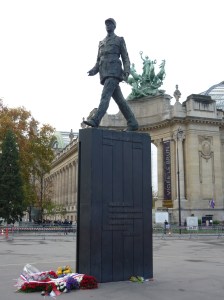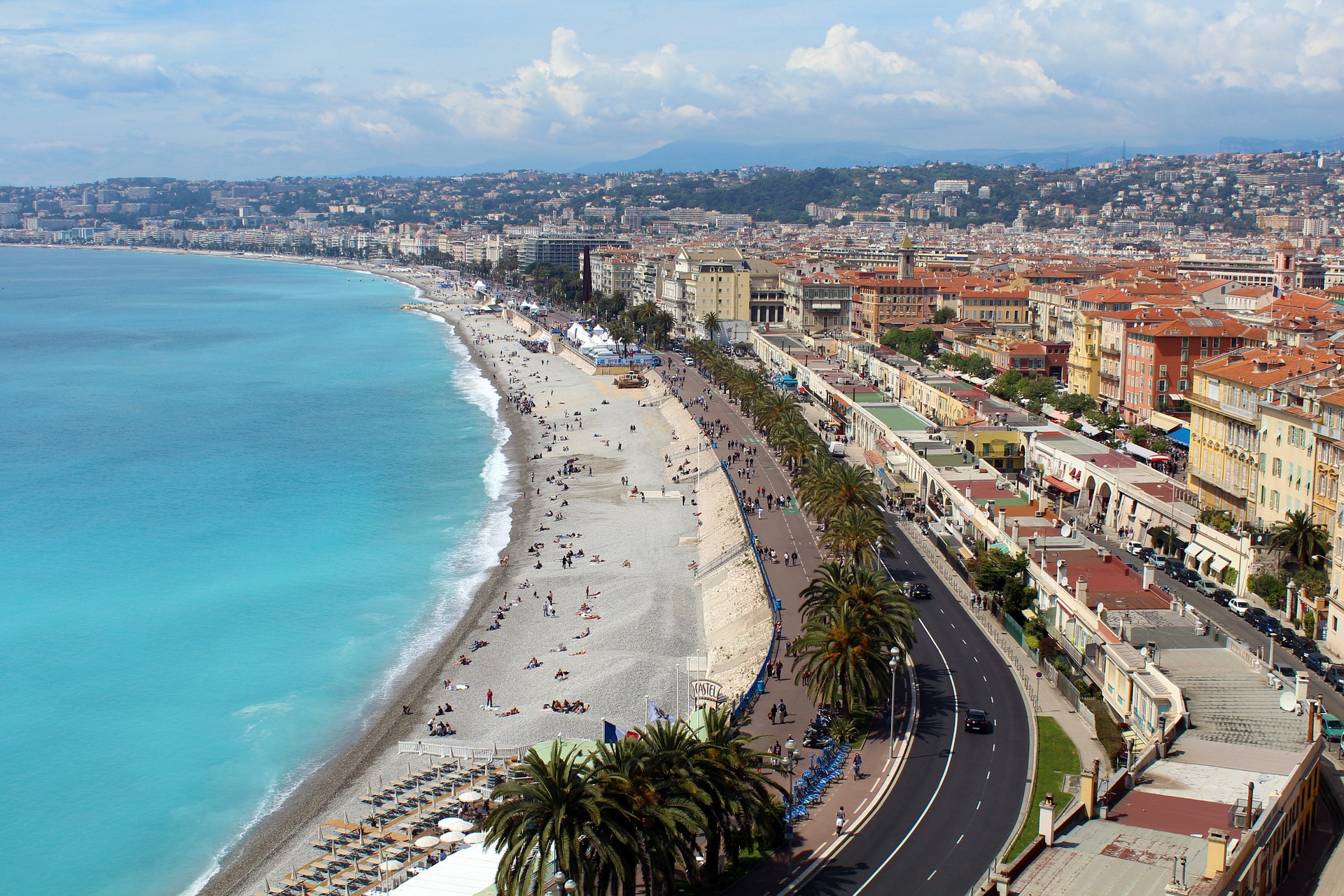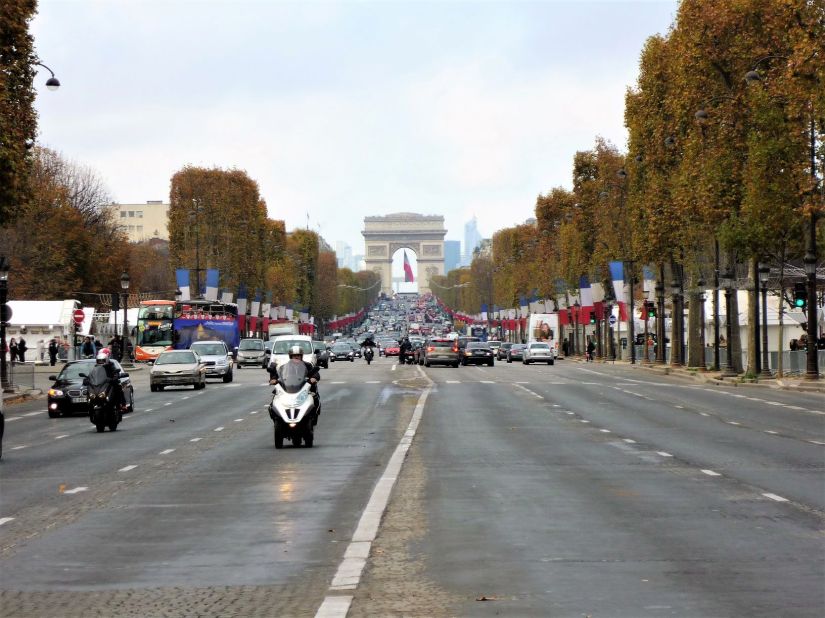This post contains affiliate links. Please see my disclosure about affiliate links here.
According to the United Nations World Tourism Organisation, France is the most-visited country in the world. France has some of the most iconic landmarks on the planet and its contribution to world cuisine, fashion and culture is enormous.
All this fabulousness can be a little overwhelming for those visiting France for the first time. So here are some important France travel tips by a blogger who is often mistaken for being French (I’m Irish, the way).
Accommodation recommendations are listed in the Destinations section below.
TRAVEL ESSENTIALS
Visa:
France is a founding member of the EU and is part of the Schengen Area. Have a look at my Schengen Travel Visa Overview post for further information.
EU/EEA citizens have the right to visit, live and work in France. Citizens of a number of countries including the US, Canada, Australia, New Zealand and Brazil can visit France visa-free for up 90 days.
Do I need a visa to visit France? Get the answer on this website by the French government
For further information on the Schengen visa process have a look at the European Commission’s website.
Language:
French. And unless you make a considerable effort to use the language then only French is what you’ll hear. I cannot emphasise the importance of learning the language prior to your visit and I cannot emphasise the importance of using it when there. The French are very proud of their language and may reply in English if you make the effort in theirs. So here is some basic French vocabulary you will have to learn:

There is a formal and informal manner of communicating in French, the core of which revolves around the word “you”. Use “vous” for formal situations and to people you don’t know. Use “tu” to friends and family. You have a ticket can be translated as:
Vous avez un billet (Formal)
Tu as un billet (Informal)
Nouns in French are assigned a gender. “Le” and “Un” are the masculine for “The” and “a”. “La” and “Une” are the feminine for same.
Le Jour – The day
Un Jour – A day
La maison – The house
Une maison – A house
Before you break into a sweat, English and French have a lot of words in common. Information, table, déjà vu, rendez vous, route, petite, menu, salade, baguette, café, cuisine, service are examples of such. A popular word used amongst bloggers is niche. It’s a French word and is pronounced phonetically as “neesh” not “nitch”!
French is the sexiest-sounding language around and isn’t called la langue de l’amour for nothing. Speaking French anywhere will significantly improve your dating opportunities. Okay, that information has no scientific basis but it got your attention, didn’t it?
If you want to present the Eurovision Song Contest you must be able to speak French. Douze points pour vous if you can.
Currency:
Euro
Best time to visit France:
It depends what kind of a holiday you’re looking for. Like most of Europe, August is peak holiday season in France. Businesses, other than the hospitality sector, tend to close for the month. Spring and Autumn are great for city breaks but not for beach holidays. Check out this post by Lyne Goes Around on How to Enjoy Paris in Spring.
The Atlantic coastal beaches are colder than their Mediterranean counterparts. Bastille Day on the 14th July is the French national holiday.
Electrical plugs:
The standard continental European type which is the two round pin plug/socket of 220V-240V.
Food:
A great reason to visit France. France’s contribution to the food world is so immense it practically dictates how dining is done in the western world. Just look at the list of French words above which have made it into the English language and you will see that most relate to food.

Bread features in every meal and is so good it could convert the staunchest of Paleo and Atkins advocates. Cheese could be the national emblem. Breakfast (le petit déjeuner) always consists of coffee and bread (usually a pastry), and may include fruit and yogurt. Lunch (déjeuner) can be salad, soup, omelette, baguette or savoury crêpe. Dinner (le dîner) is any number of dishes from a multi-course affair of aperitif, starter, main course, cheese board, dessert and digestif.
As for the quality of ingredients, it really is a toss-up between France and Ireland as to who produces the best meat and fish in Europe.
Drink:
A superb reason to visit France as the country is world-renowned for its wine and sparkling wine (aka Champagne). I cannot think of the last time I’ve had a bad glass of French red wine.
Unlike most other countries French wines are named according to their region of origin rather than the grape variety. Burgundy, Bordeaux, Rhône, Champagne, Languedoc-Roussillon and Alsace are the prominent wine regions.
French aperitifs (pre-food) and digestifs (after food) drinks are equally world-renowned such as cognac (brandy), pernod, pastis and crème de cassis.
As I don’t drink beer I cannot vouch for the French varieties but I can recommend the cider from Normandy.
The Arts in France:
Where do I begin? In cinema, literature and art France has produced and attracted the world’s best.
The Lumière Brothers are credited with pioneering the motion picture in 1895 so, in short, France invented cinema. The French film industry is second only to the US film industry in terms of popularity around the world. My 30 Movies about Europe post lists a number of films made in France. The world’s most prominent film festival takes place in Cannes.
A number of French TV series make my list of European TV Series Worth Watching.
French literary heavyweights include Simone de Beauvoir, Jean-Paul Sartre, Alexandre Dumas, Gustav Flaubert, Antoine de Saint-Exupéry, Moliére, George Sand, Victor Hugo, Marcel Proust and Jules Verne. Anna Gavalda’s Hunting and Gathering made it on to my Best Books to Read while Travelling fiction list.
The 19th Century Impressionist art movement is a French concept and encompasses the works of the greats such as Claude Monet, Pierre-Auguste Renoir, Édouard Manet, Edgar Degas, Paul Cézanne, Camille Pissarro and Alfred Sisley. Paris’s Louvre is the most visited art museum in the world.
France history:
Gallic is an adjective commonly used for France and all things French. It stems from the Celtic Gauls tribe who moved to the region in ancient times and remained in power until their defeat at the hands of the Romans in 52 BC. After the fall of the Roman Empire France was ruled by a series of tribes and royalty (including the English) up to the most significant point in European history: the French Revolution.
The Bastille, a prison and a symbol of royal tyranny was seized by revolutionaries on 14th July 1789. The French tricolour flag represents the goals of the revolution: liberty, equality and fraternity.
It wasn’t all plain sailing post-revolution. Napoleon Bonaparte and his nephew Louis Napoleon took charge, the former overthrowing the First Republic and the latter overthrowing the Second Republic. The Third Republic began after the Prussians took Louis Napoleon prisoner.
France was one of the combatants in World War I on the side of the British, Russians and the US. France found itself invaded by the Nazis in 1940. Post-WWII France is known as the Fourth Republic which, not only rebuilt the country, but heralded social and economic reform. It was dissolved by referendum in 1958 which saw the creation of the Fifth Republic which is the current system of government.
The most significant figure in 20th Century politics was Charles de Gaulle. He was the exiled leader of the French Resistance during World War II, headed the post-liberation provisional government and was elected President of France in 1958, a position he held until 1969. De Gaulle blocked the UK from joining the EEC (now EU) in 1963.

France geography:
France’s geography may explain its popularity as a holiday destination. It has excellent transport connections to land neighbours Belgium, Luxembourg, Germany, Switzerland, Italy, Monaco, Andorra and Spain. Plus, France has a variety of terrain suitable for all types of holidays.
The north and west of the country is relatively flat bordered by The English Channel and the Atlantic Ocean. The Mediterranean Sea bathes the south west coast.
The Alps run up the east border whilst France is divided from Spain by the Pyrenees. The Central Massif is the mountainous region to the south-central part of the country.

Getting around France:
For such a big country France is relatively easy to travel around on public transport. The SNCF is the national railway company with the high-speed TGV service its pride and joy. For online bookings I prefer to use the Rail Europe website.
The Paris metro is one of the world’s largest and best-known public transport systems. It’s an absolute must-do for those visiting France for the first time and is the best way of travelling around this large city. Of all the France travel tips listed here, printing a colour map of the system will benefit you greatly for planning. Maps are available from the RATP website.
Lyon and Marseille also have metro systems whilst intra-city rail transport in other cities is provided by trams and light-rail systems.
Free bicycle rental schemes operate in certain cities with Paris’s Vélib’ the largest. Cycling as a hobby is popular in France. The Tour de France is the world’s most-regarded and most-challenging cycle race.
Bus transportation between towns and cities are operated by several companies so best to check out the GetByBus website for services.
Given its size, France has inter-city air routes operated by several airlines with Air France providing the bulk of the services. Check the Skyscanner website for options on routes.
Here is a useful list of French transport vocabulary.

I find driving in France is less challenging than the Balkans but more challenging than Spain. Like all of continental Europe, vehicular traffic in France travels on the right-hand side of the road.
Getting to France:
Paris is the international hub for intercontinental aviation routes whilst a number of French cities have direct flights to most European countries, many of the routes provided by budget airlines.
France is connected to its neighbours by bus and train. France is connected to its northern ‘neighbour’, the UK, by the sub-channel Eurostar train service. It links London directly to Lille, Paris, Lyon, Marseille and Avignon. The length of time underneath the channel is approximately 20 minutes. The London terminal for the Eurostar is St. Pancras and the Paris terminal is Gare du Nord. Book directly with Eurostar for its service.
For buses to France from other countries check out the Eurolines website.
For trains to France check out the Rail Europe website listed above.
There are direct ferry services between France and Ireland, UK, Italy and North Africa. Check out the Direct Ferries website for connections.
Is France a safe country to visit:
You should have no problem in smaller towns but be vigilant in the larger cities at night. France has experienced acts of terrorism in recent years. Security has been increased significantly since then and the French government has a guide on how to react in the event of a terrorist attack.
DESTINATIONS
PARIS:
The French capital has much to see and do. In my 3-day Itinerary for Paris post, I have put together the perfect schedule that combines the popular sights with an exploration of Parisian atmosphere. The post also includes practical travel tips for visiting Paris.
The Metro may be Paris’s world-renowned public transport system. But I discovered a budget and fun way of traversing the City of Light over ground. Check out my tips and experience of the Vélib’ free bicycle system in my Bike Rental Paris post.
For accommodation in Paris check out booking.com.
PERPIGNAN:
My Perpignan post sees me accompany Munster Rugby fans to a Heineken Cup match in the south of France, acting as their compass and translator. For accommodation in Perpignan check out booking.com.
BIARRITZ:
A cheap flight found me taking refuge from the Irish summer. Although the beach is central to Biarritz there are many other Things to do in Biarritz. For accommodation in Biarritz check out booking.com.


